#ambition
By True Ventures, June 30, 2011
There are some people who leave the womb with an irrepressible urge to start their conquest for world domination. Paul Gu, one of my closest friends, is a perfect example. He took his first practice SAT while still in diapers and aced it (though to be fair, he was already in 8th grade and they were technically pull-ups), and he was more or less born to be where he is today: Thiel Fellow, star hedge fund analyst, kid-known-by-all-to-be-smart-as-hell, and soon-to-be Hegemon of Earth, if all goes according to plan (in which case we shall refer to him as Hegumon [HEH-goo-mon], and be led to intergalactic peace under His Domain).
But that’s some people. Not me. I spent most of my childhood reading fantasy books and playing with bugs outside, which gave way to an obsession with MMORPGs in my early teen years. I did pretty well in school, but I was mostly just coasting — which isn’t hard to do, given the quality of Arizona’s public school system. In fact, it wasn’t until 11th grade, after Lincoln-Douglas debate led me to philosophy and a thorough re-examination of my life and values, that I stopped living in a world detached from reality and started to feel a real sense of ambition and motivation to make an impact in the world. This feeling was accompanied by a personal renaissance, of sorts. I engaged in a struggle to make up for years of laziness in time to apply for entrance to a top university; I sought to change the fact that I knew very little about the world, never having taken education seriously or educating myself outside of school; my entire lifestyle changed. It was perhaps the single most important turning point in my life to date, and I have felt its effects ever since.
When this transition was happening, there was no doubt in my mind that I was making the right decision. Instead of living day to day idling away my time, I was finally aiming to make something of myself — and, by many measures, succeeding. But I’m reflecting on this because today, I had a conversation with another close friend and fellow entrepreneur, Keila Fong, about a similar transition that may or may not be happening to both of us right now. But the difference is that this time, there is a question of whether it’s the right decision. The question came to light when Keila asked me, “Why are you doing this? I have some ideas of my own answers are, and I’m sure you do too, but still, I think it’s worth talking about, because do we really know the answer? Why are we doing this?”
Working on a startup inherently requires sacrifice, and the answer to Keila’s question has to be good enough to justify making that sacrifice. As Jeffrey Bussgang, author of Mastering the VC Game, puts it,
“Entrepreneurs tend to genuinely believe that their brilliant vision can make the world a better place. What else would you expect form a person who works — typically day and night and often for a relatively low salary — to create something that does not exist and for which there is not even a model?”
To spend day after day, week after week, working on something that may never exist or be used by anybody — indeed, something that, statistically speaking, will probably fail — often at the expense of sleep, financial stability, career opportunities, and even personal relationships, is a decision that should not be taken lightly. As much as the startup life is romanticized, the reality of it, as I’m starting to understand this summer, is that failures and uphill battles are constant, progress will be slow and laborious, and nothing ever goes according to plan.
So if I’m really ready to take the plunge and play the entrepreneurial game, then for the undertaking to be worth the sacrifice, I know that I have to have a deep, personal reason to care about what I’m trying to create. If it’s not something I love, something I’m passionate about and can make other people passionate about simply by showing my own genuine excitement, then it won’t work. The failures will be too overwhelming, inertia will be too hard to overcome, and I can’t convince other people that the product is worth their time and dedication if I don’t think it’s even worth mine.
With this in mind, I came up with some answers. I don’t just want to be working on any startup — I have to share its mission, and believe in it. It has to provide something to the world that I personally wish I had. It has to be an enabling technology, one that has potential to make a real difference in the way people operate, and it has to be something that’s valuable enough for me to be grateful to use myself. Bussgang tells the story of the founders of Sirtris, who injected themselves with their own product in its experimental stages, in their attempt to create something to slow the process of aging. Before taking on projects in the future, I will always first ask myself whether I would do the same.
-Vishal
P.S. Thursday @ GigaOM Structure Conference with the TEClings was awesome. Pictures will be posted soon.
Note: This was originally written by Summer TEC Intern Vishal Maini on the True Ventures TEC Program Blog. It was reprinted here with his permission.

